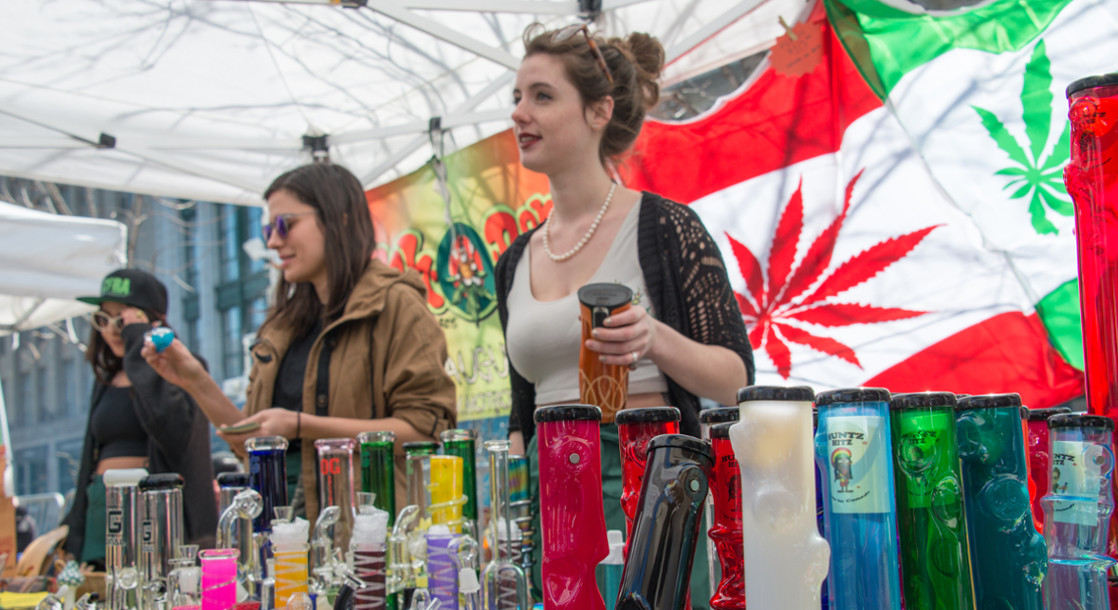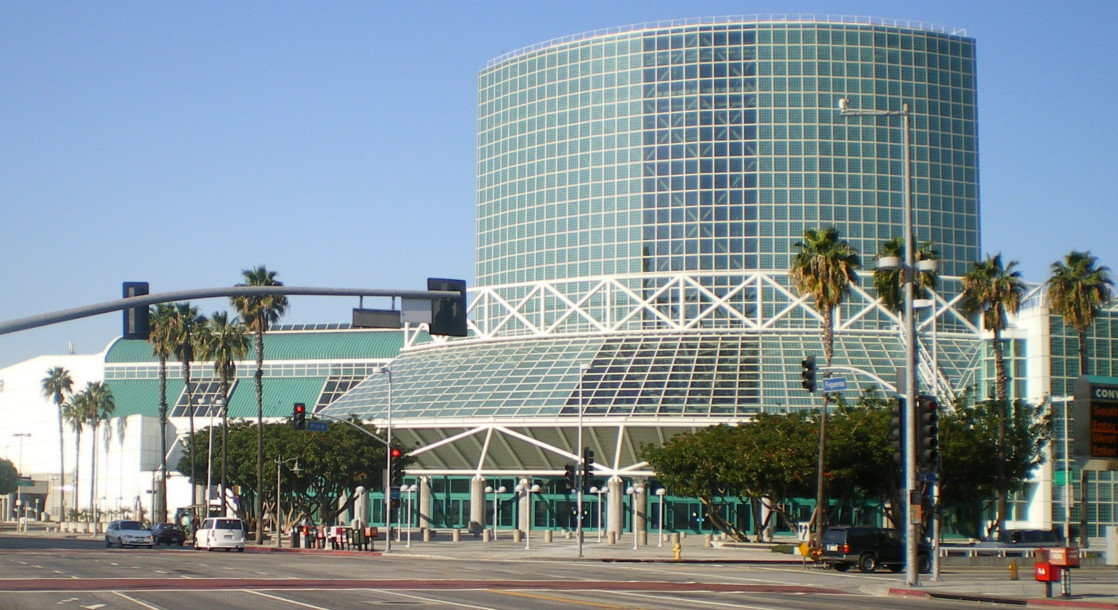Last week, Canada opened the doors on the world's largest adult-use cannabis market, but the rollout of legal sales has been anything but smooth. Every adult on Canadian soil is now technically allowed to buy pot, and even though only 15% of the country's population is expected to take advantage of this freedom, legal retailers are woefully unprepared to meet the high demand. Supply shortages are leaving customers with no legal product to buy, sending some of them back to the black market.
Still, Canada's new legalization law signals a major shift in how the world will approach cannabis moving forward. In the U.S., progressive lawmakers are criticizing entrenched party leaders for refusing to embrace the growing wave of marijuana legalization. Regardless of popular support, Democratic party chiefs have said that legal weed is a low-priority issue, even if they do manage to take back Congress in next month's midterm elections.
The fact that one of the world's largest countries has fully accepted legal marijuana has convinced Facebook to finally stop censoring cannabis-related pages from its search engine, although some Instagram users are still having trouble posting weed content. In Colorado, it’s shaping up to be a record year for marijuana sales, but the promise of legal weed in New Jersey may be delayed again due to a scandal in the new governor's administration. Meanwhile, on the other side of the globe, a presidential candidate in the country of Georgia was just busted for handing out free joints at a legalization rally.
It’s Now Legal to Buy Weed in Canada — If You Can Find It
Statistics Canada estimates that 5.4 million Canadians will buy legal weed this year, but the country's nascent cannabis industry is far from being robust enough to support this demand, leaving many of these potential customers with nowhere to buy pot legally. Only a handful of licensed retailers across the country opened their doors last Wednesday, and many of these stores are already finding themselves running out of products.
Quebec's government-operated pot stores reported 30,000 online orders and 12,500 in-store transactions on the first day of legal sales, but officials have warned customers to expect significant short-term delays in filling these orders. In Alberta, the first week of legal sales has already left stores with empty shelves, and the government-operated distribution centers don't have enough supply to allow stores to restock. In Manitoba, the situation is even worse, with product shortages that could reportedly last months.
Things are looking a little brighter in Ontario, where pot can only be legally purchased online until privately-run retail stores open their doors next year. Officials have said they will be able to deliver orders within one to five business days, but even this relatively quick turnaround time has angered customers, many of whom have threatened to continue buying black market pot until the government can provide same-day service. The situation may actually get worse before it gets better, as impending strikes by Canada Post employees could delay deliveries even further.
Democratic Lawmakers Unwilling to Support Cannabis Legalization, Even if They Take Back Congress
In two weeks, Democrats will have a chance to take back Congress, ending the iron grip that the Republican party currently holds over every branch of the U.S. government. Sadly, a Democratic win in the midterm elections is not likely to usher in an era of cannabis reform, as the party's leadership has recently made it clear that legal weed is not a legislative priority in the upcoming sessions.
House Minority Leader Nancy Pelosi has said that she is looking to President Trump for guidance on legal weed policy (ugh), while other top Democrats like Reps. Steny Hoyer and Jim Clyburn have said that legalization should take a backseat to issues like employment, infrastructure, and poverty. Thankfully, there are still a number of Democrats who are willing to stand up for cannabis reform, including Rep. Earl Blumenauer, who penned a letter to party leaders urging them to embrace legalization, offering a step-by-step plan to achieve cannabis reform if Democrats do succeed in taking back the House.
Despite this lack of support among party leadership, Canada's recent legalization has convinced a number of younger lawmakers that cannabis reform is an issue that actively needs to be addressed. Last week, lawmakers representing canna-legal states protested the DEA's decision to import Canadian weed for U.S.-based medical research instead of allowing researchers to source home-grown cannabis. Legislators have also been pressuring the Customs and Border Protection agency to explicitly clarify their policies on permanently banning Canadian cannabis industry employees — or even recreational users — from entering the United States.
Cannabis Legalization in New Jersey Delayed By Sexual Assault Allegations, Disagreement
During his successful campaign to become governor of New Jersey, Phil Murphy made a bold promise to bring legal weed to the Garden State within his first 100 days in office. Although a majority of voters have expressed their support for this goal, state legislators have been far less enthusiastic, and a bill to create a licensed and regulated adult-use market is still mired in legislative debate. Yesterday, lawmakers announced that they will miss an October deadline for a vote on that legislation, as some Democrats in the state Senate are withholding their support. Senate President Stephen Sweeney says he needs “help” from the Murphy administration to rally enough votes to pass it.
The process is also being delayed by a scandal involving one of the new governor's top aides, which legislators must now investigate. Last week, New Jersey Housing and Mortgage Finance Authority Chief of Staff Katie Brennan publicly accused Albert J. Alvarez, the new Chief of Staff for the state's Schools Development Authority, of sexual assault. The Murphy administration was reportedly fully aware of these allegations when they hired Alvarez, and the resulting scandal has prompted state lawmakers to launch a full investigation. Legislators say they’re confident that they can advance the legalization bill while the investigation progresses, but a source tells Politico that “it definitely has hampered the momentum.”
Facebook is Allowing Cannabis-Related Searches Again, But Instagram's Rules Are Less Consistent
Earlier this summer, Facebook users found that searches for “cannabis,” “marijuana,” or related terms were being blocked, effectively making every pot-related page invisible to anyone that had not already followed them. The company reportedly implemented this broad censorship in order to prevent illegal drug sales via their service, but Canada's recent legalization has now convinced them to rethink their decision, especially now that fully-legal cannabis companies — and even government agencies like the Ontario Cannabis Store — were finding their pages hidden from sight.
Facebook will now allow legitimate cannabis pages that have undergone the company's verification process to appear in searches, but its other social platform Instagram seems less clear about its guidelines. Like Facebook, Instagram's posting policies are designed to stop people from using the app to sell prohibited drugs, but do not explicitly prohibit other forms of cannabis-related posts. Still, some users are reporting that the company is inconsistently banning some users for posting weed pics, while allowing others to do so.
Candidate for President of Georgia Busted for Handing Out Free Joints at Legalization Festival
Although cannabis reform is making the most ground in North America, activists across the globe are still fighting for the right to use this natural plant. In the country of Georgia, a former nation of the Soviet Union, a presidential candidate was just busted for handing out free joints at the country's first cannabis legalization festival. At this unauthorized festival, Zurab Japaridze, leader of the libertarian Girchi party, handed out free weed to draw attention to the country’s inconsistent cannabis laws.
This July, Georgian courts ruled that it was unconstitutional to punish citizens for smoking weed, effectively decriminalizing personal cannabis use. Despite this progressive move, the Georgian government is strongly opposed to legalization, and police raided the festival, detaining a number of protesters following a brief scuffle. Although Georgian cops are no longer allowed to arrest citizens for smoking pot, distribution of marijuana — even for free — remains illegal, and cops hauled Japaridze off to jail for his generous act.
Colorado Cannabis Sales Topped $1 Billion in August
Back in the U.S., the Colorado Department of Revenue announced that legal weed sales revenue topped $1 billion as of this August, bringing the state $200 million in tax revenue so far for 2018. Out of the four years that the Centennial State has been selling pot legally, this is the fastest that sales have hit the billion-dollar mark, boosting hopes that the state will break last year's record of $1.5 billion in sales. Officials reported that the boost in sales was driven by the growing popularity of edibles and concentrates, while flower sales remained consistent.
Next time we’ll check in on upcoming state ballot measures to legalize cannabis across the U.S., along with the week’s other major developments in marijuana. In the fight for pot reform, knowledge is power, so stay tuned!











